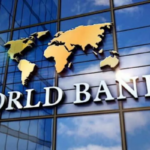The Federal Government has announced that the National Single Window (NSW) system is expected to reduce port-related costs by up to 25 per cent, potentially saving the country about N2.5 trillion annually. The NSW is designed to streamline trade processes by integrating all port activities and documentation into a single digital platform.
This move is part of broader efforts to improve efficiency and transparency at the country’s ports, where multiple agencies currently operate independently. Officials say the new system will cut down on delays, reduce corruption, and improve the ease of doing business.
Read also: AfDB and Bank of Africa Tanzania sign $7.5m deal to support trade finance
Debt servicing climbs to $1.08bn in Q4 2024
Meanwhile, Nigeria’s external debt service obligations rose sharply to $1.08 billion in the fourth quarter of 2024, according to data from the Debt Management Office (DMO). This figure represents a significant increase from the previous quarter and continues a trend of rising debt service payments.
In the third quarter of 2024, total public debt servicing costs reached N3.57 trillion. This was an increase of N60 billion, or 1.71 per cent, compared to the second quarter.
Read also: African oil giants advance IPO plans to attract global investment
IMF tops list of Nigeria’s creditors
In the fourth quarter of 2024, multilateral creditors received the largest share of Nigeria’s external debt service payments, totalling $600.71 million or 55.7 per cent of the total, with the International Monetary Fund (IMF) alone accounting for $407.97 million.
Other multilateral lenders included the International Development Association (IDA) with $116.48 million, the African Development Bank (AfDB) with $43.89 million, the International Bank for Reconstruction and Development (IBRD) with $14.48 million, and the Islamic Development Bank (IsDB) with $5.83 million.
Read also: Nigeria, Angola and Ghana back Africa Energy Bank with $249m in capital contributions
Commercial creditors paid nearly 40 per cent
Commercial creditors received a total of $430.53 million in the fourth quarter of 2024, representing 39.9 percent of Nigeria’s external debt service payments.
This included $280.16 million paid to syndicated loans, $148.57 million to Eurobond holders, $1.54 million to UniCredit S.P.A, $144,000 to Standard Chartered Bank, and $108,000 to Deutsche Bank AG.
Bilateral payments remain low
Bilateral creditors were paid a total of $46.85 million in the fourth quarter of 2024, accounting for 4.3 per cent of Nigeria’s external debt service.
The main recipients were Agence Française de Développement (AFD) of France with $33.13 million, KfW of Germany with $11.84 million, and China Development Bank with $1.88 million, while no payments were made to Japan, China Exim Bank, or India Exim Bank during the period.
Read also: iSON Xperiences appoints Ricardo Langwieder as Chief Sales Officer
Concerns over debt sustainability
Analysts have raised concerns over Nigeria’s rising debt service burden, particularly in light of the country’s volatile exchange rate and declining foreign reserves.
They warn that continued reliance on non-concessional borrowing—especially through IMF disbursements and Eurobond issuances—is putting pressure on Nigeria’s external financial position.
As debt obligations increase, stakeholders say Nigeria must carefully manage its borrowing strategy and prioritise fiscal reforms to ensure long-term sustainability.










